CCG continues to conduct two-way research on corporate globalization, the "go global" movement and inwards investment. Our research includes topics including U.S.-China trade, international trade, inbound investment, outbound investment and digital trade in an international context.
CCG is constantly looking for more ways to promote global free trade and has taken the lead in promoting China's participation in the CPTPP and publishing a series of relevant research reports. In addition, CCG's research team compiles and publishes the only Chinese blue book report on the globalization of Chinese enterprises: Chinese Enterprises Globalization, published by China Academy of Social Sciences Press.
CCG has also published a series of books on the globalization of enterprises in both English and Chinese, including Report on Development of Overseas Chinese Entrepreneurs, Rising Tide: 40 Years of Chinese Enterprises Going Global, China Goes Global and The Globalization of Chinese Enterprises. CCG also holds the China Outbound-inbound Forum, the most influential forum in China focusing on the development and globalization of enterprises.
CCG has set up several sub-forums on international issues related to international trade and investment, gathering leaders of multinational enterprises, ambassadors to China, former government officials, heads of international organizations and chambers of commerce, experts from top international think tanks and other influential people from home and abroad. In-depth discussion with renowned scholars has helped to develop the event into a high-end international forum for promoting the globalization of enterprises.
-
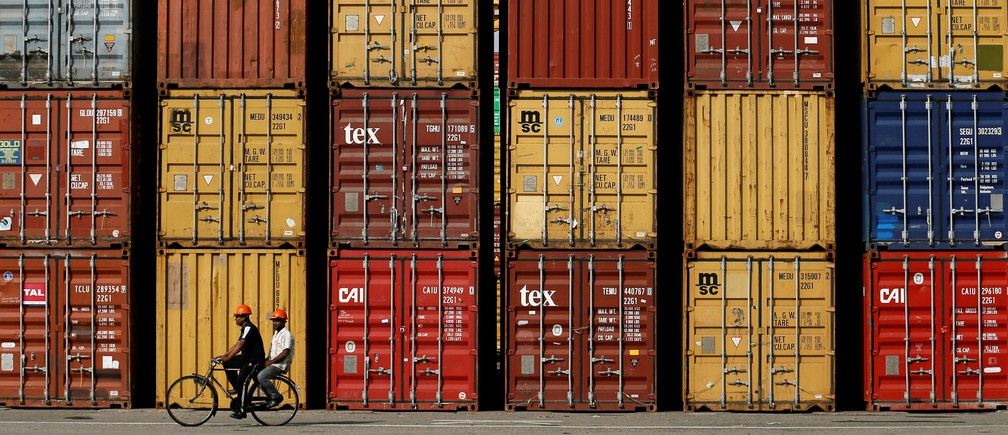
Cheng Shuaihua: 3 things the G20 can do to save the WTO
This week, trade and investment ministers from the G20 will gather at Mar del Plata in Argentina for the first time since the tariff dispute started in the spring of 2018.
September 14 , 2018 -
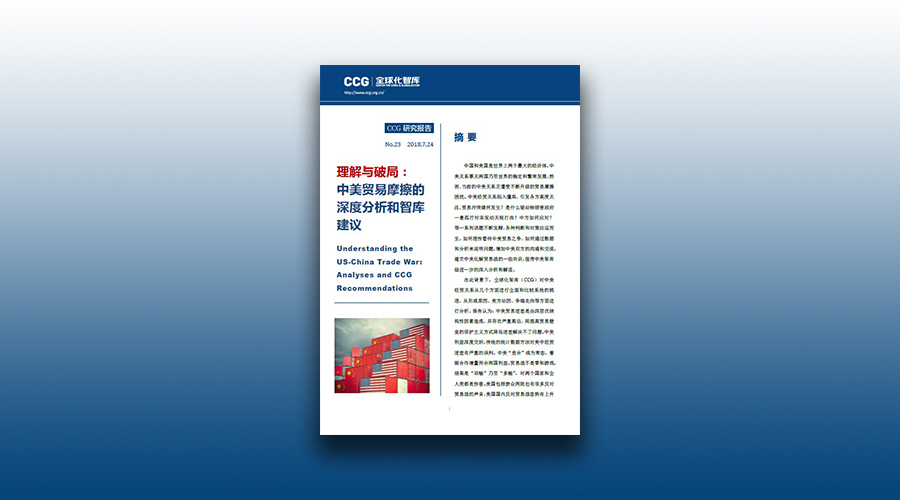
CCG Report | Understanding the US-China Trade War: Analyses and CCG Recommendations
PDF Download
July 25 , 2018 -
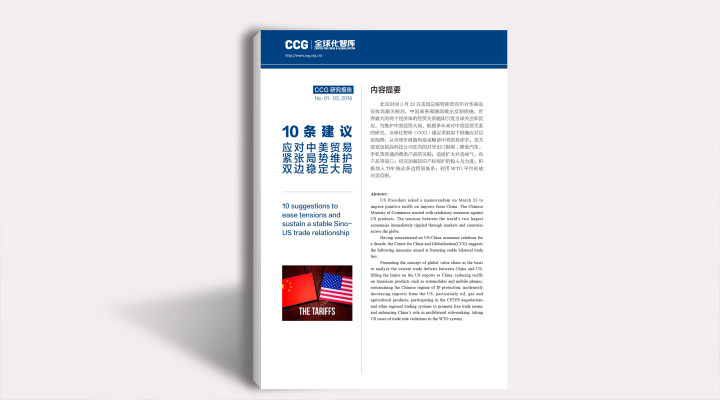
10 suggestions to ease tensions and sustain a stable Sino-US trade relationship
Abstract:US President inked a memorandum on March 23 to impose punitive tariffs on imports from China. The Chinese Ministry of Commerce reacted with retaliatory measures against US products. The tensions between the world’s two largest economies immediately rippled through markets and countries across the globe.Having concentrated on US-China economic relations for a decade, the Center for China and Globalization(CCG) suggests the following measures aimed at fostering stable bilateral trade ties:Promoting the concept of global value chain as the basis to analyze the current trade deficits between China and US; lifting the limits on the US exports to China; reducing tariffs on American products such as automobiles and mobile phones; reexamining the Chinese regime of IP protection; moderately increasing imports from the US, particularly oil, gas and agricultural products; participating in the CPTPP negotiations and other regional trading systems to promote free trade norms and enhancing China’s role in multilateral rule-making; taking US cases of trade rule violations to the WTO system.Summary:CCG recommends that the Chinese Government moderate its response to US actions and continue to adhere to the goal of long term stable economic and trade relations between the two nations via the following 10 suggestions:1. Campaign for a new mode of analyzing trade effects that would more accurately reflect how much US companies gain from the bilateral trade deficit, given the forces of the global value chains; and insist on including trade in services which China runs a large deficit with the US, such as tourism, education spending, immigration-oriented investments in the trade deficit analysis.
July 19 , 2018 -
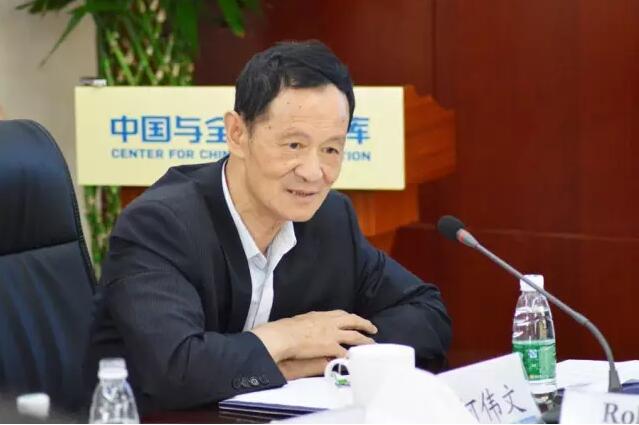
He Weiwen: Dialogue works better than threat on IP issues
The United States has launched an investigation to determine whether China has indulged in "forced transfer of American technologies and theft of American intellectual property". US Trade Representative Robert Lighthizer subsequently announced an investigation into IP issues relating to China under Section 301 of the US Trade Act of 1974.
August 23 , 2017 -
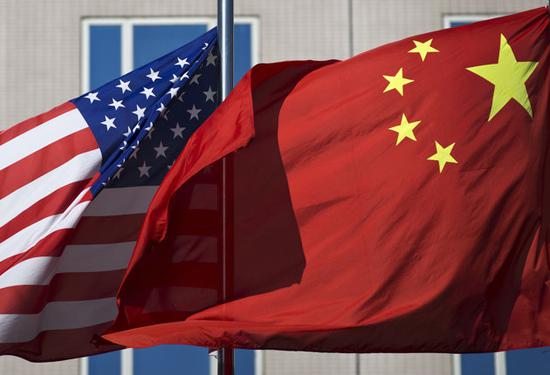
He Weiwen: China, US should look beyond trade imbalance
Why was the dialogue unable to redress the trade imbalance? It’s because the current situation is caused by the United States’ position in the global supply chain, and it’s beyond the two countries’ power to change it.
August 10 , 2017


